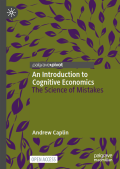
An Introduction to Cognitive Economics
This book redefines economics through the lens of human cognition, emphasizing how people actually think, decide, and behave in markets. It challenges traditional rational models, drawing from psyc…
- Edisi
- -
- ISBN/ISSN
- -
- Deskripsi Fisik
- -
- Judul Seri
- -
- No. Panggil
- 330.01 Cap A

"Japan’s Financial System New Perspectives and Potential Risks in the Post…
This volume analyzes Japan’s financial landscape after the global financial crisis, highlighting structural changes, regulatory responses, and emerging vulnerabilities. It assesses banking reform…
- Edisi
- -
- ISBN/ISSN
- -
- Deskripsi Fisik
- -
- Judul Seri
- -
- No. Panggil
- 332.0952 Fuk J

Blockchain, Crypto Assets, and Financial Innovation
This book delves into how blockchain and crypto assets reshape financial systems, driving innovation and challenging regulation. It discusses decentralized finance, digital asset valuation, and ris…
- Edisi
- -
- ISBN/ISSN
- -
- Deskripsi Fisik
- -
- Judul Seri
- -
- No. Panggil
- 332.178 Ger B
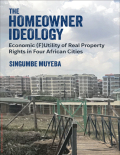
The Homeowner Ideology: Economic (F)Utility of Real Property Rights in Four A…
Muyeba explores the role of homeownership in four African cities, analyzing whether formal property rights enhance economic security or limit opportunities. He challenges assumptions about ownershi…
- Edisi
- -
- ISBN/ISSN
- -
- Deskripsi Fisik
- -
- Judul Seri
- -
- No. Panggil
- 333.338 Muy T
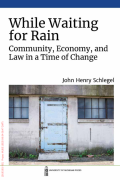
While Waiting for Rain: Community, Economy, and Law in a Time of Change
Schlegel examines the decline of U.S. and Buffalo’s economies since the 1960s, investigating how law, innovation, and local institutions respond when economic structures collapse. Arguing against…
- Edisi
- -
- ISBN/ISSN
- -
- Deskripsi Fisik
- -
- Judul Seri
- -
- No. Panggil
- 330.973 Sch W
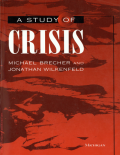
A Study of Crisis
Brecher and Wilkenfeld analyze over nearly a century of international crises (1918-1994), using data from more than 400 events and almost 900 state actors. They explore causes, escalations, and res…
- Edisi
- -
- ISBN/ISSN
- -
- Deskripsi Fisik
- -
- Judul Seri
- -
- No. Panggil
- 303.6 Bre A
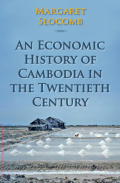
An Economic History of Cambodia in the Twentieth Century
Slocomb analyzes Cambodia’s turbulent twentieth-century economy, from colonial exploitation through war, socialism, and market reforms. She traces shifting policies, agricultural collapse, indust…
- Edisi
- -
- ISBN/ISSN
- -
- Deskripsi Fisik
- -
- Judul Seri
- -
- No. Panggil
- 330.9596 Slo A
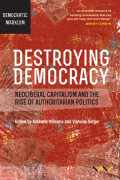
Destroying Democracy: Neoliberal capitalism and the rise of authoritarian pol…
This volume explores how decades of neoliberal capitalism have undercut democratic norms globally, enabling authoritarian politics to flourish. It uses case studies from India, Brazil, South Africa…
- Edisi
- -
- ISBN/ISSN
- -
- Deskripsi Fisik
- -
- Judul Seri
- -
- No. Panggil
- 320.6 Wil D
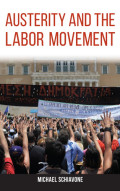
Austerity and the Labor Movement
Schiavone examines how austerity policies in countries like the US, UK, Greece, Ireland, and Spain have weakened labor movements. He analyzes why unions have struggled to resist neoliberal economic…
- Edisi
- -
- ISBN/ISSN
- -
- Deskripsi Fisik
- -
- Judul Seri
- -
- No. Panggil
- 331.88 Sch A

Rio 2016: Olympic Myths, Hard Realities
Rio 2016 critically assesses the promises versus the realities of hosting the 2016 Olympics. Losers include displaced favela residents, public finances overburdened by corruption, and green/sustain…
- Edisi
- -
- ISBN/ISSN
- -
- Deskripsi Fisik
- -
- Judul Seri
- -
- No. Panggil
- 307.76 Zim R
 Karya Umum
Karya Umum  Filsafat
Filsafat  Agama
Agama  Ilmu-ilmu Sosial
Ilmu-ilmu Sosial  Bahasa
Bahasa  Ilmu-ilmu Murni
Ilmu-ilmu Murni  Ilmu-ilmu Terapan
Ilmu-ilmu Terapan  Kesenian, Hiburan, dan Olahraga
Kesenian, Hiburan, dan Olahraga  Kesusastraan
Kesusastraan  Geografi dan Sejarah
Geografi dan Sejarah